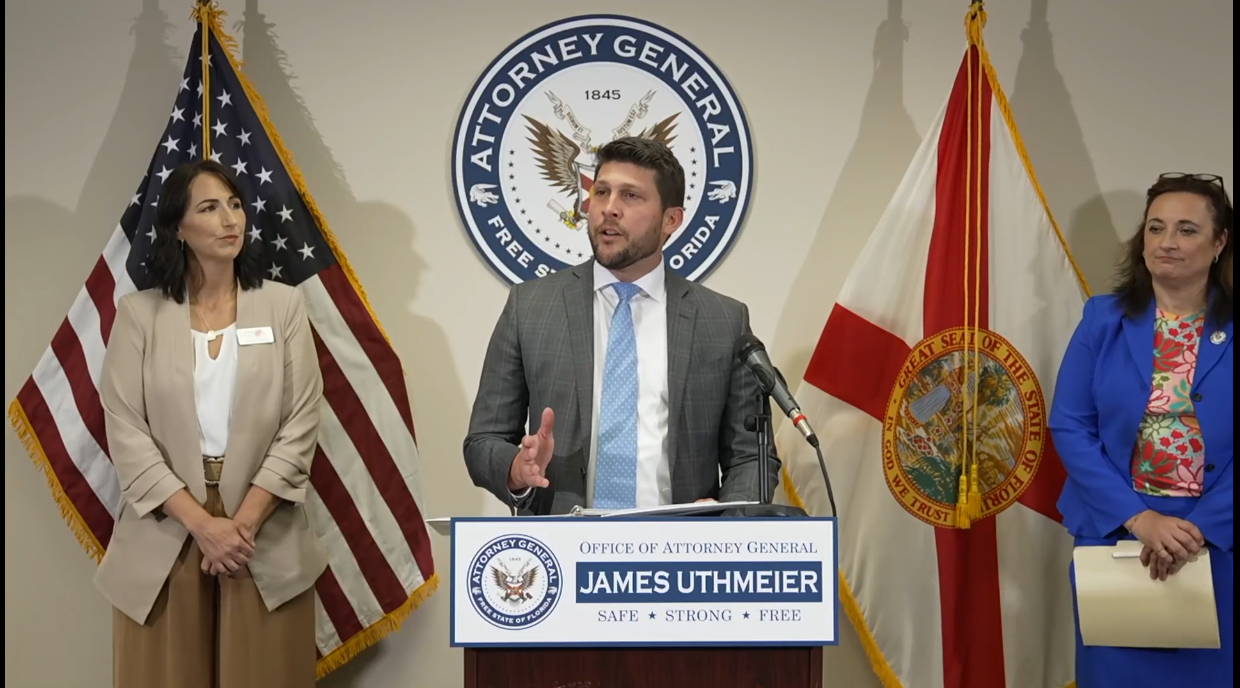The House PreK-12 Budget Subcommittee advanced a measure that would align the Florida schools grading system with the grading system used for Florida’s school students.
Tampa Republican Rep. Susan Valdés said the bill (HB 1483) would bring transparency to the Florida school system by allowing parents to know how the school they choose for their child truly performs.
“The purpose of this bill is to provide truth and transparency to our parents, students, and teachers on how well each school is preparing its students.” Valdés said. “Florida’s current grading system is an A through F system, and this was established to provide a universally recognized way of summarizing a students and schools academic performance, to motivate schools to improve strident achievement.”
Valdés clarified that the grading system in current use for students would not change.
“So, we all know that the school grading system, how we grade our kids in school is the grades A through F, meaning an A would be 90% to 100%, and this is not what we’re doing with comparing school grades to the way that we’re grading our kids,” Valdés said. “We need to make that clear, the way we grade our students will not change at all.”
However, Valdés added that the way that Florida grades it’s schools, is far below what people are all familiar with.
“So, for instance, if you’re in an elementary school in Florida, the bar for reaching an A grade, is set at 62%, not 90%.” Valdés said. “The bar for a C is at 41%, not 70%, and the bar for an F is 31%, not 59%. So, if you’re in middle school in Florida, the bar for an A is set at 64%, not at 90%, the bar for a C is at 44%, not a 70%, and the bar for an F is at 33%, not at 59%.”
Valdés said the bill would implement the change over the course of a ten-year period, and the changes would not begin until the 2026-27 school year.
“So, what does all this mean is that eventually over a ten-year period of time, we’re proposing that the Florida school grades align to the scale that we are most commonly used to having our kids graded on,” Valdés said. “The details of the transition are as follows: for the school year 2025-26, the school grades will not change in scale, what it will do is give the opportunity for districts to really assess and make sure that they have all the supports in line needed to help the students.”
Valdés noted the new grading scale would take effect during the 26-27 school year and will go up by one point over the next eight years, incrementally, to catch up with the way that students are graded.
Valdés explained that the bill also expands support for students with substantial deficiencies in reading and/or mathematics, by capturing more students in the need of support and expanding the provisions of interventions into voluntary pre-Kindergarten programs through grade eight, to cast a larger net of those supports for kids.
“The bill also requires that the New World Reading initiative develop a competitive grant, to provide classroom’s libraries that will include books encompassing diverse subjects and genres for each grade level from kindergarten through fifth grade,” Valdés said.
Tallahassee Democratic Rep. Allison Tant asked why the rating scale is how it is right now from the Department of Education (DOE). In response, Valdés said it was set years ago when school grading began and had not been addressed since around 2012.
Tant then asked how the bill will affect certain students who are living below the poverty line and if resources would be available to them to help them succeed.
“As you know, I represent a school that’s in turn around now, or has been, just came out over in Jefferson County,” Tant said. “I understand that we need to do something about this, but how do you accommodate those students that are in my district who have two incarcerated parents or raised by a great-grandmother or grandmother who may not be able to read herself, living in poverty.”
“Like, how are we making sure that in this grading system, we’re also bringing those kids that aren’t similarly resourced to some of their peers, don’t have anybody to reading to them at home, are hungry, maybe come to school with health issues, how are we addressing that?” Tant asked.
Valdés said the bill doesn’t change any of the support systems currently available to such students, and added could uncover more support.
“Really and truly this bill doesn’t change any of those supports that these families will receive,” Valdés said. “On the contrary, I believe what this bill will do, is really uncover a lot of the other supports that these families would need, by being transparent which with the actuality of that school.”
Valdés said that data from the DOE shows that 80% of students who score below a three by third grade, will never catch up.
“That’s scary. That’s scary and that should be something that should really give us a wakeup call,” Valdés said.
Greenacres Republican Anne Gerwig asked how they would go back and face demoralized schools who are eventually going to be judged on their fallen grade.
Valdés said that there are a lot of students currently at A grade schools who are not meeting third grade requirements and are at risk of permanently falling behind their peers.
“I believe in our school districts, I believe in these educators’ ability, they’re our superheroes, they really are, and when you’re thinking about there are … off the top of my head, 260 schools that are graded an A, who less than 50% of their students, are meeting the benchmark of being three and above. And they’re an A school,” Valdés said. “So that means that there’s some students that we are not capturing, that we’re still not wrapping our arms around them with their needs in order for them to prosper.”
Jacksonville Democratic Rep. Kimberly Daniels asked if the bill could go in a different direction if the transition shows it could be causing problems with schools.
Valdés said there would be more supports in place, but she would be happy to come back in future sessions to tweak things if needed.
During the bill’s debate, Tant said she had concerns around the different needs of different school districts and how they will continue to be served.
“Here’s the concerns I have, I have one school district in turnaround, I have another school district that’s coming out of turnaround and the effort that it has taken them has been monumental,” Tant said. “The grading scale in both those counties, and I want the grades to be reflective, but I will tell you that the needs in those school districts they’re vastly different, than the needs in Leon County for example.”
The bill will make its next stop at the House Education & Employment Committee.
Post Views: 0

 Politics8 years ago
Politics8 years ago
 Entertainment8 years ago
Entertainment8 years ago
 Entertainment8 years ago
Entertainment8 years ago
 Entertainment8 years ago
Entertainment8 years ago
 Tech8 years ago
Tech8 years ago
 Tech8 years ago
Tech8 years ago
 Tech8 years ago
Tech8 years ago
 Politics8 years ago
Politics8 years ago










